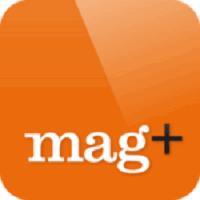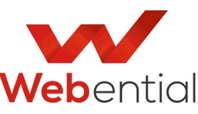Description

Mag+ Application Development

Webential
Comprehensive Overview: Mag+ Application Development vs Webential
Mag+ Application Development Overview
Mag+ is a digital content publishing platform designed to help businesses and individuals create, distribute, and manage interactive content across digital devices, notably on tablets and smartphones. It allows for creating rich media experiences without the need for extensive programming knowledge.
a) Primary Functions and Target Markets
Primary Functions:
- Content Authoring and Design: Mag+ provides tools for creating dynamic and interactive content. Users can design magazines, brochures, presentations, and other digital materials using the Mag+ plugin for Adobe InDesign.
- App Creation: The platform allows users to create custom applications that can host their digital content. These apps can be published to various app stores, like Apple’s App Store and Google Play.
- Content Management and Distribution: Mag+ offers a backend management system where users can organize and distribute their digital content. This includes analytics to track user engagement.
- Interactivity and Multimedia Integration: The platform supports various media types, including video, audio, animations, and web overlays, allowing for an enriched user experience.
Target Markets:
- Publishers: Traditional magazine and newspaper publishers looking to transition to or expand in the digital space.
- Corporate Communications: Companies wanting to create internal communications tools, digital catalogs, or sales presentations.
- Education: Institutions creating interactive textbooks or learning materials.
- Agencies and Designers: Creative professionals who want to offer digital publishing services.
b) Overall Market Share and User Base
While comprehensive current market share data for Mag+ specifically alongside all other competitors might not be available, Mag+ positions itself competitively among other digital publishing solutions by targeting niche markets. In terms of user base, it is used by various notable publishers and companies worldwide, but its market presence is relatively moderate compared to tech giants' development solutions.
Comparisons:
- Large Platforms: Solutions from Adobe (like Adobe Experience Manager) tend to have a far more considerable market share due to their broad offerings and existing market establishment.
- Niche Solutions: Compared to smaller, niche platforms, Mag+ holds a competitive position owing to its focus on interactivity and ease of use without needing extensive coding skills.
c) Key Differentiating Factors
- Ease of Use: Mag+ offers an intuitive plugin for InDesign that is accessible for users with design backgrounds, reducing the learning curve associated with digital app development.
- Interactivity Focus: The platform emphasizes interactive and multimedia-rich publications, catering to users who want to offer an engaging experience.
- Comprehensive Package: Mag+ provides an end-to-end solution from content creation to distribution and analytics, which is beneficial for users who require a full-service platform.
- Customization and Flexibility: While providing templates and pre-designed elements, Mag+ allows for significant customization, enabling creators to tailor apps to specific needs and branding guidelines.
- Targeted Approach: Unlike some broader solutions, Mag+ targets specific industries with distinct needs, enabling them to focus on features and supports that cater directly to those areas.
In essence, while Mag+ may not have the dominant market share compared to technological giants, it has carved a niche for itself by focusing on simplicity, interactivity, and end-to-end service for digital content creation and distribution across various sectors.
Contact Info

Year founded :
Not Available
Not Available
Not Available
Not Available
Not Available

Year founded :
2007
+61 402 543 197
Not Available
Australia
http://www.linkedin.com/company/webential
Feature Similarity Breakdown: Mag+ Application Development, Webential
As of my last update, there isn't specific information available regarding a detailed breakdown of features for the "Mag+ Application Development" and "Webential" since they may not be directly comparable products or there might be limited public data on their exact features. However, I can provide a generic approach for how you might analyze feature similarity and differentiation if these were comparable products in the realm of application development and web solutions.
a) Core Features Common to Both:
-
User-Friendly Design: Both likely emphasize easy-to-use interfaces catering to developers with varied expertise.
-
Customization and Flexibility: Allow for adjustments to meet specific business or user needs, providing options for custom development and various integration capabilities.
-
Cross-Platform Compatibility: Likely to offer solutions that work across multiple platforms (iOS, Android, web browsers).
-
Performance Optimization: Tools and features aimed at enhancing the speed and efficiency of the applications developed.
-
Support and Documentation: Both could offer robust support systems, including tutorials, guides, and customer support channels.
b) User Interfaces Comparison:
-
Design Aesthetics: Mag+ might focus more on creative design tools for publishing digital content, whereas Webential may focus on web and app user interfaces with a more functional layout.
-
Navigation and Usability: They both likely stress intuitive navigation, but the specifics of layout and user experience can vary based on their target audience and design philosophy.
c) Unique Features:
-
Mag+ Application Development:
- Likely specializes in digital publishing applications, offering features tailored for creating and distributing interactive magazines and brochures.
- Offers specific tools for content creators to easily design, edit, and publish without needing deep technical skills.
-
Webential:
- Possibly offers a broader range of web services, including web design and development, SEO, digital marketing, and IT support, which extend beyond just app development.
- May emphasize ecommerce solutions, web development outsourcing, and comprehensive digital strategy services.
If you are considering these tools for a specific use case, I recommend contacting the companies directly or checking the most recent product documentation for an accurate comparison of features.
Features

Not Available

Not Available
Best Fit Use Cases: Mag+ Application Development, Webential
Mag+ Application Development and Webential are solutions focused on digital publishing and web development respectively, each catering to distinct needs and industries. Here's an analysis of the best use cases for both:
Mag+ Application Development
a) Best Fit Use Cases:
-
Digital Publishing Industry:
- Mag+ is ideal for publishers looking to create interactive digital magazines, brochures, or catalogues. Its platform is designed to support rich media, making it perfect for publications that want to integrate video, audio, and interactive elements.
-
Marketing and Advertising Agencies:
- Agencies seeking innovative ways to communicate with audiences can use Mag+ to develop dynamic promotional materials, apps, or presentations that distinguish their brand and messages.
-
Educational Institutions:
- For creating interactive textbooks or engaging educational content, Mag+ offers a user-friendly platform that supports interactive learning modules.
-
Corporate Communications:
- Corporations can use Mag+ to distribute internal communications, training materials, or product information as part of their digital transformation strategy.
-
Small to Medium Enterprises (SMEs) with Product Catalogues:
- SMEs wanting to replace traditional product catalogues with digital versions that provide richer product experiences can benefit from Mag+ easily and affordably.
Webential
b) Preferred Use Cases:
-
E-commerce Development:
- Businesses specifically looking to establish or revamp an online storefront may find Webential’s expertise in building scalable e-commerce platforms especially beneficial.
-
Custom Web Solutions for SMBs:
- Small to medium-sized businesses in need of custom websites or web applications can leverage Webential’s tailored development services to create unique and cost-effective solutions.
-
Startups:
- Webential is well-suited for startups that require agile web development methodologies and rapid prototyping for Minimum Viable Products (MVPs).
-
Digital Marketing Agencies:
- Agencies that need to implement and manage client websites, including SEO and digital marketing strategies, would benefit from Webential's comprehensive web services and support.
-
Large Enterprises Looking for Outsourced Development:
- Corporations that want to outsource specific web tasks or projects, obtain custom integrations, or augment their in-house team's capabilities can rely on Webential for professional execution.
Industry Verticals and Company Sizes
Mag+ and Industry Verticals:
- Primarily targets sectors requiring digital publishing content, impacting industries like media and entertainment, retail for product engagement, and education for interactive materials.
- Best for medium to large-size businesses with existing publishing needs or innovative SMEs exploring digital avenues.
Webential and Industry Verticals:
- Broadly applicable across industries like retail, health, education, and finance, depending on the web development needs—whether e-commerce, corporate sites, or portals.
- Suitable for a wide range of businesses from small startups looking to launch quickly to large enterprises needing complex web applications and integrations.
Overall, these tools cater to different aspects of digital transformation and can aid companies in creating unique experiences tailored to their respective audiences and industry requirements.
Pricing

Pricing Not Available

Pricing Not Available
Metrics History
Metrics History
Comparing teamSize across companies
Conclusion & Final Verdict: Mag+ Application Development vs Webential
When evaluating Mag+ Application Development and Webential, it is essential to consider several factors including functionality, usability, cost, support, and target audience. Here's a structured conclusion and final verdict:
Overall Value: Considering all factors, Webential provides the best overall value for organizations looking for a robust and flexible web-based solution. This is primarily due to its comprehensive suite of services, adaptability to various business needs, and value for money in terms of feature offerings and return on investment.
Pros and Cons:
Mag+ Application Development:
-
Pros:
- Excellent for designing and deploying interactive digital content, particularly for magazines and catalogs.
- User-friendly interface tailored for creative professionals, with powerful design tools.
- Offers strong support for multimedia integration, enhancing user engagement.
-
Cons:
- Best suited for niche markets, particularly digital publishing, which may limit its applicability for broader corporate use.
- Costs can be high relative to other solutions, especially considering specialized use cases.
- May require integration with other tools for analytics and broader marketing efforts, potentially increasing complexity and costs.
Webential:
-
Pros:
- Broad functionality that caters to web development, digital marketing, and e-commerce solutions, making it versatile across different industries.
- Competitive pricing with scalable options, ideal for startups and growing businesses.
- Strong customer support and an agile development approach that allows for customization.
-
Cons:
- The broad range of services can be overwhelming for users with simple needs who may underutilize the platform.
- May require more initial setup and learning curve for users unfamiliar with comprehensive digital suites.
- Integrating all services into a cohesive user experience may need additional configuration.
Recommendations:
- For users primarily focused on digital publishing and content creation, Mag+ Application Development is an excellent choice. It provides specialized tools for interactive and engaging media projects.
- For businesses seeking a versatile, all-encompassing solution that addresses not only digital content but also web development and marketing strategies, Webential is recommended. It offers a more expansive range of services that can grow with the business.
- Evaluate the specific needs of your project or business: If high-quality digital publishing is the main requirement, Mag+ should be considered. If broader scope capabilities are needed, along with potential growth into other digital arenas such as e-commerce or web application development, Webential offers a more comprehensive solution.
In conclusion, the decision between Mag+ Application Development and Webential should be guided by the specific goals, industry focus, and budgetary constraints of the user. Each product has its unique strengths, making them suitable for different applications and business models.
Add to compare
Add similar companies




